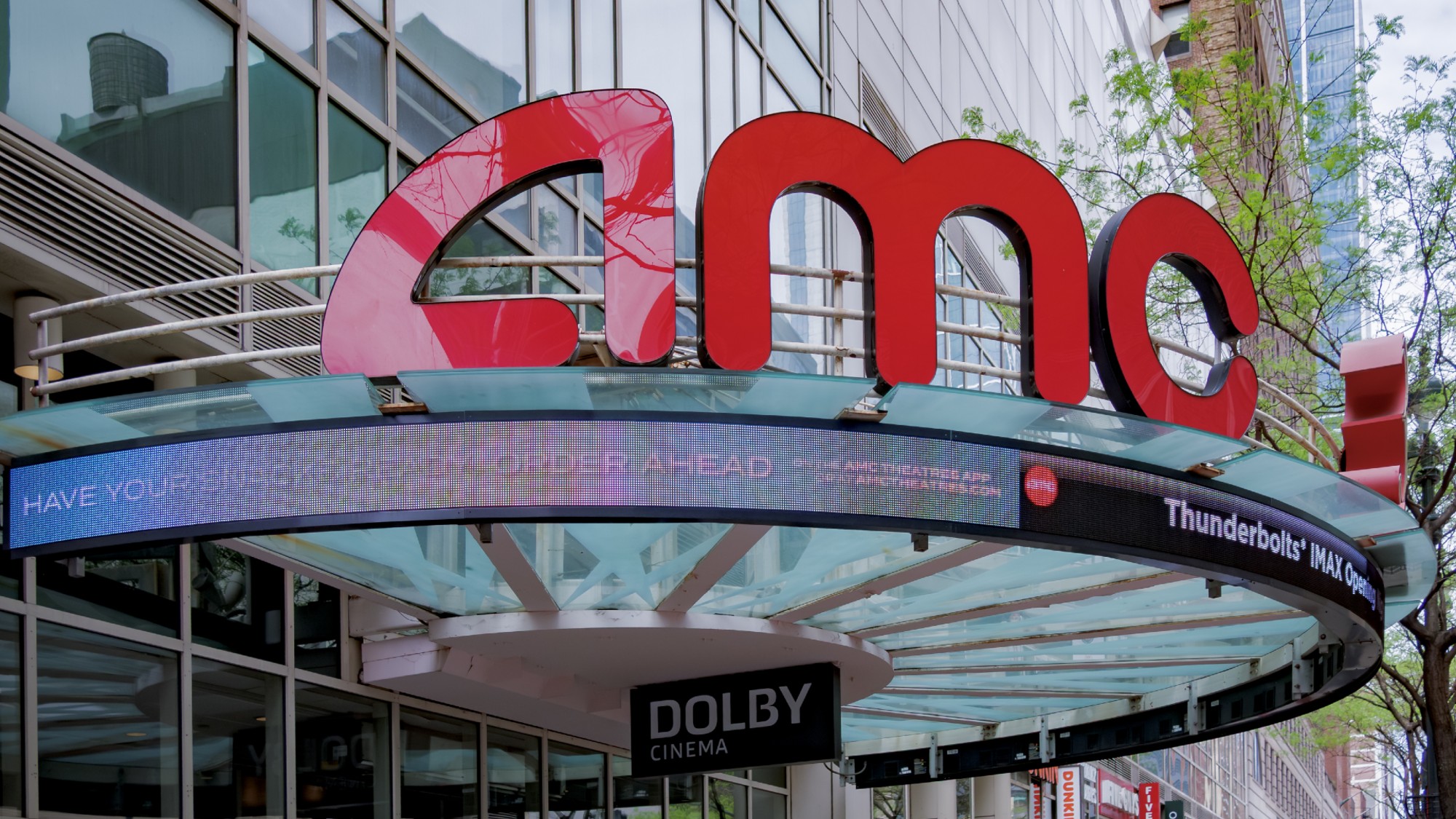AMC hopes new ticket discounts will reinvigorate the movie theater industry
The theater chain now has 50% discounts on both Tuesdays and Wednesdays


A free daily email with the biggest news stories of the day – and the best features from TheWeek.com
You are now subscribed
Your newsletter sign-up was successful
Despite being the largest movie theater chain in the U.S. (and the world), AMC Theatres is trying out a new experiment to get more viewers in seats. The company has begun a half-price ticket initiative on Wednesdays for members of its free Stubs loyalty program. While AMC previously offered discounted tickets on Tuesdays, the chain aims to boost attendance by adding a weekday. But given all of the available streaming options at home, industry experts aren't so sure.
'Make moviegoing more affordable than ever'
The half-off discounts for rewards members apply to adult-evening base ticket prices all day on Tuesdays and Wednesdays at every AMC location, the theater chain said. The half-price promotion on Tuesday replaces the company's prior discount deal on that day, which allowed members to get $5 off. These promotions are "designed to make moviegoing more affordable than ever," AMC said in a press release.
AMC's executives seem to feel that the promotions will make a big difference. The company "could not afford to have made this change to our ticket pricing strategy until the box office showed true signs of sustained recovery," said AMC Chairman and CEO Adam Aron. Throughout 2025, the "box office has been booming, and the remainder of 2025 appears poised to continue that upward box office trend."
The Week
Escape your echo chamber. Get the facts behind the news, plus analysis from multiple perspectives.

Sign up for The Week's Free Newsletters
From our morning news briefing to a weekly Good News Newsletter, get the best of The Week delivered directly to your inbox.
From our morning news briefing to a weekly Good News Newsletter, get the best of The Week delivered directly to your inbox.
'The decision still comes down to the price'
While AMC is optimistic that movie theaters are on the rise again, it is still an uphill climb for attendance to reach pre-pandemic numbers. Box office totals are "up 15% year-to-date versus 2024 due to the second quarter rebound," said CNN, which is good news for the industry. But "earnings for 2025 are still down 24.1% compared with 2019." Even with a strong start, total box office grosses this year are only expected to "reach about 80% of 2019's totals, with 2026 predicted to reach 86%," Alicia Reese, the senior vice president for media and entertainment at Wedbush Securities, told the Los Angeles Times.
Along with declining theater attendance across the industry, AMC's own attendance "declined by 11% in the first quarter of 2025" and the company "reported a near-7% fall in revenues year-on-year," said Business Insider. The decision to expand its half-off days is a clear effort to "lure more moviegoers back to the big screen."
Wednesday is "overall the slowest day of the week in terms of box office grosses," said The Hollywood Reporter, meaning the discount may not play as big of a factor as AMC hopes. But "Tuesday has historically seen a bump in foot traffic," so it remains to be seen "what type of an impact Wednesday discounts will have," said Steve Buck from the research firm EntTelligence. It is "exciting to see further market experimentation with ticket pricing to engage consumers."
At the end of the day, the "decision still comes down to the price of a movie compared with other outings," Daniel Loria, the editorial director at BoxOffice Pro, said to CNN. He noted that the average streaming subscription costs $7.99 compared to a $25 movie ticket in premium markets like Los Angeles or New York City. And while going to the movies may be cheaper than attending events like a sporting match or concert, consumers "still care about the increased cost of going to theaters compared to staying at home," said Jackie Brenneman of the cinema industry consultancy The Fithian Group. Theaters "need more dynamic offerings" to keep driving customers.
A free daily email with the biggest news stories of the day – and the best features from TheWeek.com
Justin Klawans has worked as a staff writer at The Week since 2022. He began his career covering local news before joining Newsweek as a breaking news reporter, where he wrote about politics, national and global affairs, business, crime, sports, film, television and other news. Justin has also freelanced for outlets including Collider and United Press International.
-
 Political cartoons for February 12
Political cartoons for February 12Cartoons Thursday's political cartoons include a Pam Bondi performance, Ghislaine Maxwell on tour, and ICE detention facilities
-
 Arcadia: Tom Stoppard’s ‘masterpiece’ makes a ‘triumphant’ return
Arcadia: Tom Stoppard’s ‘masterpiece’ makes a ‘triumphant’ returnThe Week Recommends Carrie Cracknell’s revival at the Old Vic ‘grips like a thriller’
-
 My Father’s Shadow: a ‘magically nimble’ film
My Father’s Shadow: a ‘magically nimble’ filmThe Week Recommends Akinola Davies Jr’s touching and ‘tender’ tale of two brothers in 1990s Nigeria
-
 Companies are increasingly AI washing
Companies are increasingly AI washingThe explainer Imaginary technology is taking jobs
-
 Lucasfilm passes ‘Star Wars’ torch to new leaders
Lucasfilm passes ‘Star Wars’ torch to new leadersSpeed Read Kathleen Kennedy is stepping down after 14 years at the company
-
 Buffett: The end of a golden era for Berkshire Hathaway
Buffett: The end of a golden era for Berkshire HathawayFeature After 60 years, the Oracle of Omaha retires
-
 Why is pizza in decline?
Why is pizza in decline?In the Spotlight The humble pie is getting humbler
-
 How prediction markets have spread to politics
How prediction markets have spread to politicsThe explainer Everything’s a gamble
-
 Tariffs have American whiskey distillers on the rocks
Tariffs have American whiskey distillers on the rocksIn the Spotlight Jim Beam is the latest brand to feel the pain
-
 TikTok secures deal to remain in US
TikTok secures deal to remain in USSpeed Read ByteDance will form a US version of the popular video-sharing platform
-
 SiriusXM hopes a new Howard Stern deal can turn its fortunes around
SiriusXM hopes a new Howard Stern deal can turn its fortunes aroundThe Explainer The company has been steadily losing subscribers
